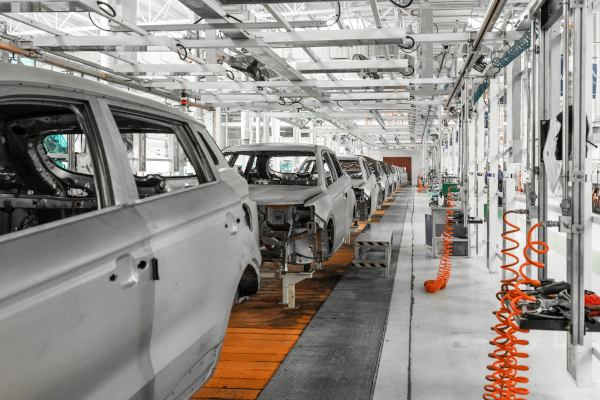We all remember the semiconductor chip shortage of 2021-22. According to consulting firm AlixPartners, the global auto industry produced 8.2 million fewer vehicles in 2021 because of the chip shortage. And while the chip shortage is mostly a memory in 2023, it may rear its ugly head again soon, thanks to the push for electric vehicles.
“If you break it down to the manufacturing level, there are five or six major manufacturers that participate in the semiconductor EV [space],” Frank Cavallaro, CEO of A2 Global, explains. That, he tells Supply Chain Management Review, may not sound like a significant issue, but it could be.
The global semiconductor industry is massive, with projected revenues of nearly $600 billion this year according to Statista data, growing to more than $800 billion by 2027. The automotive chip industry, though, is just a portion of this massive industry, accounting for just $42 billion 2022 and growing to $70 billion by 2027, according to Markets and Markets research.
Consequently, few semiconductor manufacturers are turning their operations upside down to develop these chips specifically for automobiles. And that poses potential trouble for an industry that is rapidly moving to electric vehicles.
Adding to the complexity, Cavallaro says, is that each of the companies already in the space produce chips for specific functions – the average diesel-powered automobile requires about 1,500 semiconductors whereas an EV doubles that amount – and “they are not interchangeable.”
A January report in Power Electronics News noted that the “majority of the automotive semiconductors today rely on mature nodes [greater than] 28nm. But by the end of 2022, it has been estimated that 56% of the installed capacity is on node sizes less than 28nm, and only 10% of the total equipment spending is going into >80mm nodes. This is bad news for the automotive industry as they need high-quality and low-cost chips but only a few companies are investing in wide-range automotive semiconductor technologies.”
A McKinsey report at the end of 2022 found that autonomous driving, connectivity and electrification will drive most of the demand for automotive chips through 2030, accounting for 89% of the total $147 billion automotive semiconductor chip market in 2030.
The report also noted that demand for a critical component – the wafer – will increase from about 11 million units in 2019 to 33 million by 2030. Cavallaro, though, said most of the wafer investment taking place in the chip industry is in the sub-11 nm market, not the larger 90 nm space.
“Every single node size except for the 25-45ish range will be in an undersupply situation at current demand levels,” he says, adding that the 25-45 range is on par with demand.
Of concern is that capacity has “stayed steady” Cavallaro says, and the sub-11 node size remains the most profitable, limiting the companies willing to invest in the larger automotive sizes. Additionally, the design cycle for an automotive chip is about 60 months, much longer than most other chips.
“Semiconductor companies are increasing production of 90 nm chips, but our analysis suggests that the CAGR will remain at only 5% or so from 2021 through 2026—not enough to eliminate the supply–demand mismatch,” McKinsey wrote. “What’s more, OEMs that rely on 90 nm chips for many applications have little incentive to migrate to smaller nodes, because the shift would require additional development and qualification costs, as well as more R&D staff.”
Cavallaro says he is concerned that as car makers announce and convert their the majority of their lineups to all-electric vehicles – Mercedes-Benz is among the first with a state goal of all new platforms EVs by 2025 – by 2030 that stakeholders may only be looking at the total chips produced, and not the specific needs of the automotive market.
That could put new pressure on supply chains.
SC
MR


Latest Supply Chain News
- Despite American political environment, global geopolitical risks may be easing
- Joseph Esteves named CEO of SGS Maine Pointe
- Employees, employers hold divergent views on upskilling the workforce
- April manufacturing output slides after growing in March
- Q1 sees a solid finish with positive U.S.-bound import growth, notes S&P Global Market Intelligence
- More News
Latest Podcast

 Explore
Explore
Procurement & Sourcing News
- Despite American political environment, global geopolitical risks may be easing
- April manufacturing output slides after growing in March
- World Trade Centers offers a helping hand to create resilient, interconnected supply chains
- Bridging the ESG gap in supply chain management: From ambition to action
- Israel, Ukraine aid package to increase pressure on aerospace and defense supply chains
- How CPG brands can deliver on supplier diversity promises
- More Procurement & Sourcing
Latest Procurement & Sourcing Resources

Subscribe

Supply Chain Management Review delivers the best industry content.

Editors’ Picks




